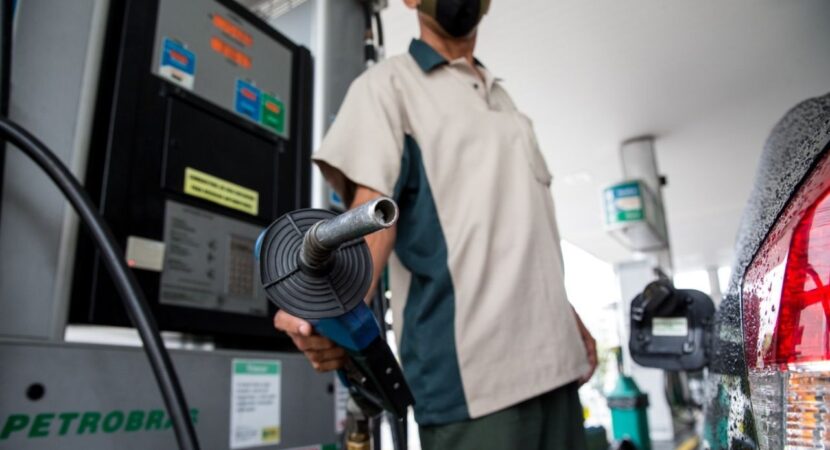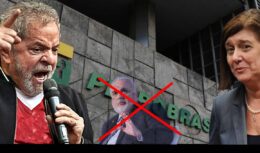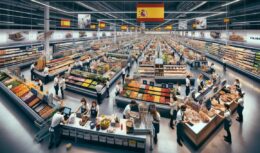
Scarcity of anhydrous alcohol could raise fuel prices, cause ethanol shortages and gas stations should pass on increases to consumers
Exemption from PIS and Cofins taxes for fuel came to an end last week and businessmen in the field were not at all satisfied. At the time, the measure was created to contain the rise in the price of gasoline and diesel applied by the oil company Petrobras. Now, there is a new concern for businessmen: the scarcity of anhydrous alcohol. The lack of this input can raise the price of fuel and cause shortage of ethanol at gas stations, and in the end it will go into the pockets of Brazilians.
Read also
- Ethanol prices soar at the pumps as consumption grows and mills extract more sugar; who pays the bill is the consumer
- Ethanol price evaporates at the plants and exporting the biofuel to the USA, the world's main consumer of ethanol, becomes a very advantageous 'salvation'
- Ethanol production plummets and mills increase sugar production due to low sugarcane prices
- Mixing hydrogen with ethanol promises to revolutionize performance and reduce fuel consumption in flex-fuel engines
- Ethanol plants and sugarcane suppliers are fighting to share revenue from carbon credits from the federal RenovaBio program
- Direct sale of ethanol from plants will stimulate competition and curb the increase in gasoline prices at gas stations
According to André Marra, owner of gas stations in SP, the increase in compounds will impact the consumer's pocket, since posts cannot absorb increases on their own and so they need to pass on the price.
“Importers and fuel producers are obliged to inform the ANP of their purchase and sale price. In the middle of the way we have the distributors, which for some reason are not obliged to inform neither the acquisition nor the sale price. We gas stations are obliged all day to stamp the sale price on consumers. As a gas station owner, I would like to have the opportunity to also inform not only consumers, but the press, everyone, the price at which I buy fuel”, said André.
Anhydrous shortage has to do with the fact that the international sugar price is high, so the mills will prefer to produce sugar
The executive director of the Brazilian Association of Independent and Free Fuel Resellers, Rodrigo Zingales, says that the scarcity of anhydrous may be a reflection of the market's performance, based on the mills' interests. “A sugar and alcohol plant is capable of producing sugar, hydrous ethanol and, eventually, anhydrous ethanol. What happens is: if the international sugar price is high, the mill will prefer to produce sugar instead of ethanol”, he analyzes.
High demand for biofuel in the US can save Brazilian plants that have operated at negative levels
Despite the 2021/2022 sugarcane harvest in Brazil, which began in April, being smaller than the previous one, the demand for ethanol in Brazil should remain under pressure in 2021, still due to the isolation of the coronavirus pandemic, according to estimates by consultancy StoneX. However, with lower domestic consumption and rising prices for corn in the US market, there are opportunities to export of Brazilian biofuel to the United States, currently the world's leading consumer of ethanol.
According to the opinion of experts on the subject, even if the market follows the new cycle, there is strong entry information from the mills in the futures market in order to take advantage of the high prices practiced.
Ethanol and gasoline prices soar and Petrobras increases CNG by 39%
Petrobras announced a 39% readjustment in the selling prices of Natural Gas for vehicles for distributors. As of May, CNG, the main option for drivers who travel many kilometers a day and flee the increase in the price of gasoline and ethanol, will also impact Brazilians' pockets. However, even with the readjustment, supplying with Natural Gas will continue to be advantageous, says Copergás.
CNG became popular in Brazil when it was used by app drivers and taxi drivers. This is because it has better performance and is cheaper than ethanol and gasoline fuels. According to the BR distributor, the economy is 60%, on average.
The option for fuel gained strength at the beginning of this year with the rise of gasoline and ethanol, which add up to 40,76% and 25%, respectively. While the cubic meter of CNG costs R$ 2,984, gasoline costs R$ 5,328 per liter and ethanol R$ 3,818 in prices for São Paulo measured by the ANP (National Agency for Petroleum, Natural Gas and Biofuels).












Very cool!
35 tons of gold went to…
Throwing a lot of rubbish into the sea...
The right is extremely trustworthy. Kkkkkkkkkkkkkk
I already have experience but...
I would like to have an opportunity to…
The truth is, after the year…
As the President of VOLKS said in a…